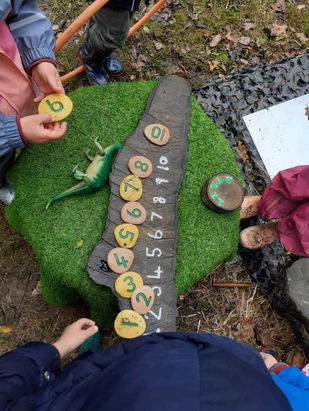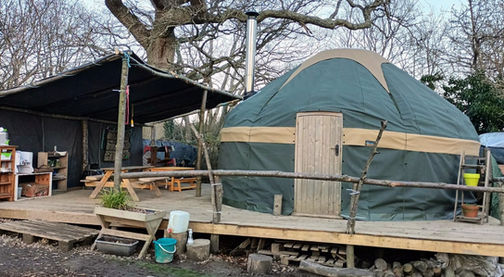Curriculum

Our Early Years Curriculum at Toddlers Inn Nursery School
At Toddlers Inn Nursery School, we believe that every child is unique and learns in their own way. Our early years curriculum is designed to nurture and inspire children's curiosity, awe and wonder. We believe that children learn best through play, so our curriculum is full of hands-on, engaging activities that allow children to explore their natural curiosity.
We believe that outdoor learning is essential for children's development. Our nursery is located in the beautiful countryside of Chailey, and we take full advantage of our surroundings. Children spend a lot of time outdoors, exploring the natural world and learning about the seasons, plants, animals and the environment.
Our curriculum is planned in the moment, based on the children's interests and needs. We believe that children learn best when they are engaged and motivated, so we are always adapting our activities to ensure that they are relevant and interesting to the children.
We create beautiful and enticing ‘Invitations to Learn’ so children can explore and delve a little deeper into subjects which are new to them; learning about different cultures and events happening in the local community and the wider world.
We encourage the children to develop independence, supporting those early self-help skills, building their confidence to become strong, curious, independent learners ready to tackle any challenge.
Here are some of the key elements of our early years curriculum:
-
Planning in the moment: We believe that the best way to plan for children's learning is to observe them and see what interests them. We then plan activities that will extend their learning and help them to explore their interests further in an open ended, natural way.
-
Natural and real life materials: We use a lot of natural, real life materials in our activities and environment. This helps children to connect with the natural world and learn about the properties of different materials.
-
Curiosity: We encourage children's curiosity and help them to ask questions. We believe that this is the best way for children to learn and explore the world around them.
-
Awe and wonder: We want children to experience awe and wonder. We believe that this is essential for their emotional development and for their sense of self-worth.
-
Children's interests: We base our activities on the children's interests. This ensures that they are engaged and motivated, and that they are learning in a way that is meaningful to them.
-
Outdoor learning: We believe that outdoor learning is essential for children's development. Children have free flow access to our wonderful outdoor spaces every day, where they can explore the natural world and learn about the plants, animals, and the environment. We visit local areas in our mini bus to build a sense of community and awareness of every day roles and responsibilities.
We believe that our early years curriculum provides children with the foundation they need for a lifetime of learning. We are passionate about providing a nurturing and stimulating environment where children can learn and grow in a safe and supportive setting.
Here are some examples of how we put these principles into practice:
-
We might plan a water play activity after a rainy day, when the children are particularly interested in water.
-
We might take a nature walk after seeing a bird's nest in the forest school garden and listen to their songs in the trees.
-
We might make kites and streamers after the children make comment about the wind blowing.
-
We might cook something yummy on the fire after the children notice the vegetables growing in the allotment.
-
We might visit the local butterfly centre after the children find a caterpillar on a leaf.
We believe that by planning in the moment and following the children's interests, we can create a truly engaging and meaningful learning experience. To support this further, we use our enhanced learning activities to ensure the children have every opportunity to fulfil their own potential, accessing experiences that are unique and diverse.

Click the image above to see our school readiness flyer.




















